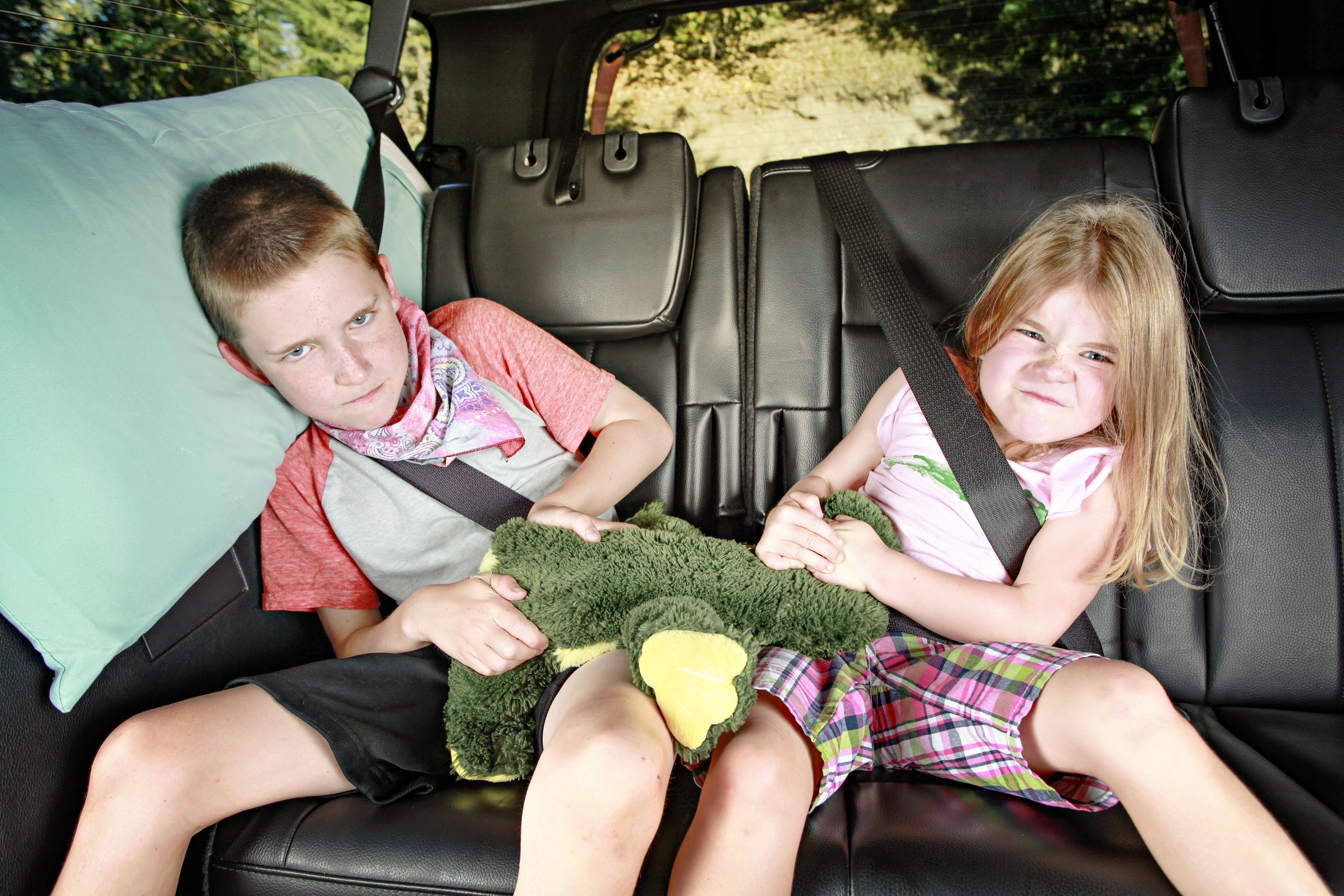Understanding citizenship Social Studies Worksheets for Ages 6-7
6 filtered results
-
From - To
Explore our "Understanding Citizenship" Social Studies Worksheets designed specifically for ages 6-7. These engaging resources help young learners grasp important concepts about community, rights, responsibilities, and what it means to be a good citizen. Through fun activities, children will learn about critical topics such as cooperation, respect, and the role they play in their community. Perfect for classroom use or homeschooling, these worksheets foster essential social skills and encourage active participation. Dive into our collection on Kids Academy and give your kids a head start in developing their understanding of citizenship and their role in society.
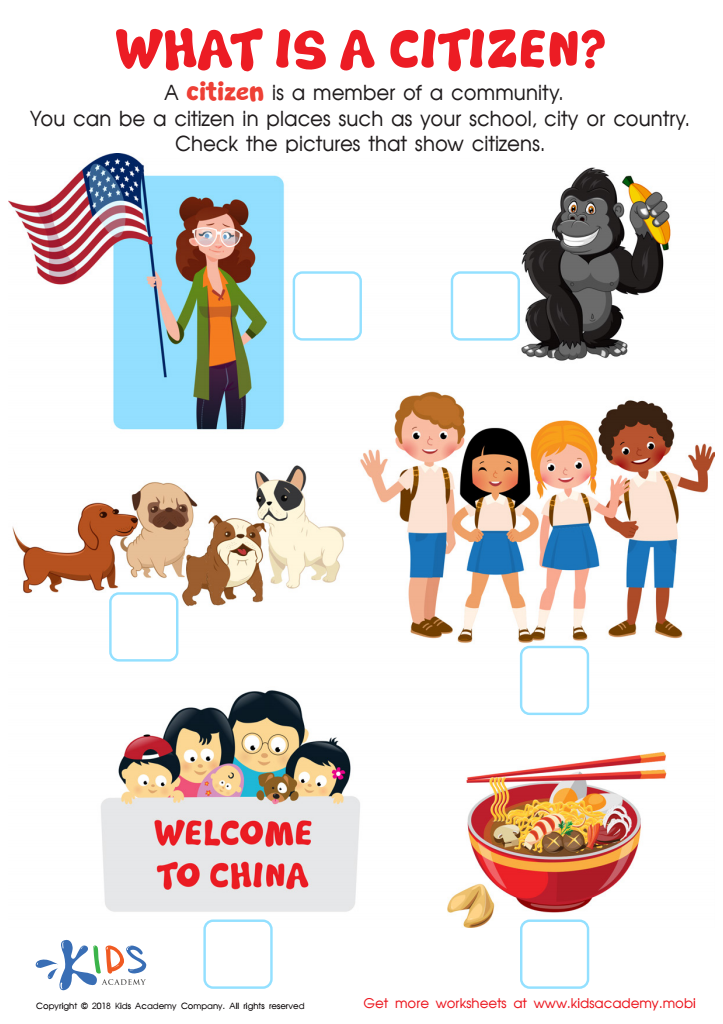

What is a Citizen? Worksheet
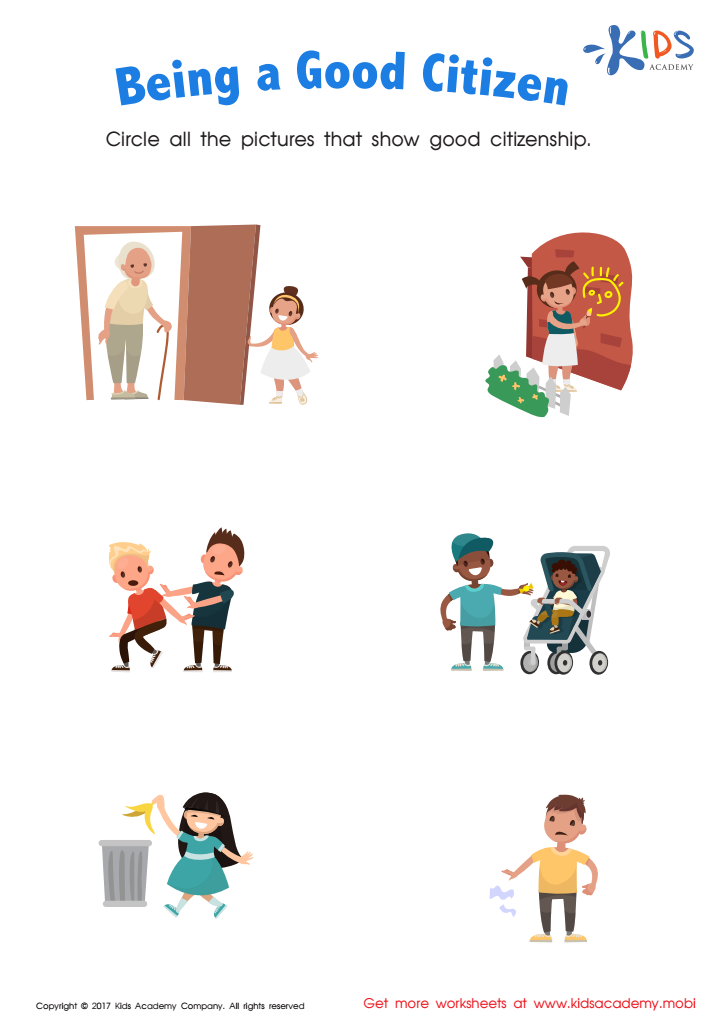

Being a Good Citizen Printable
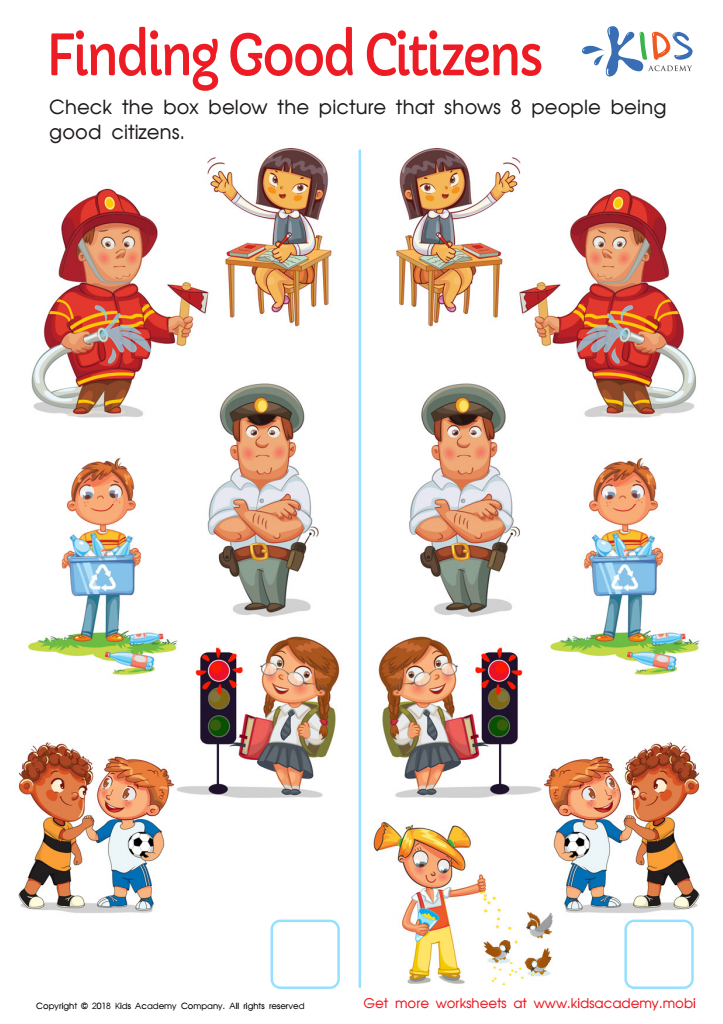

Finding Good Citizens Worksheet
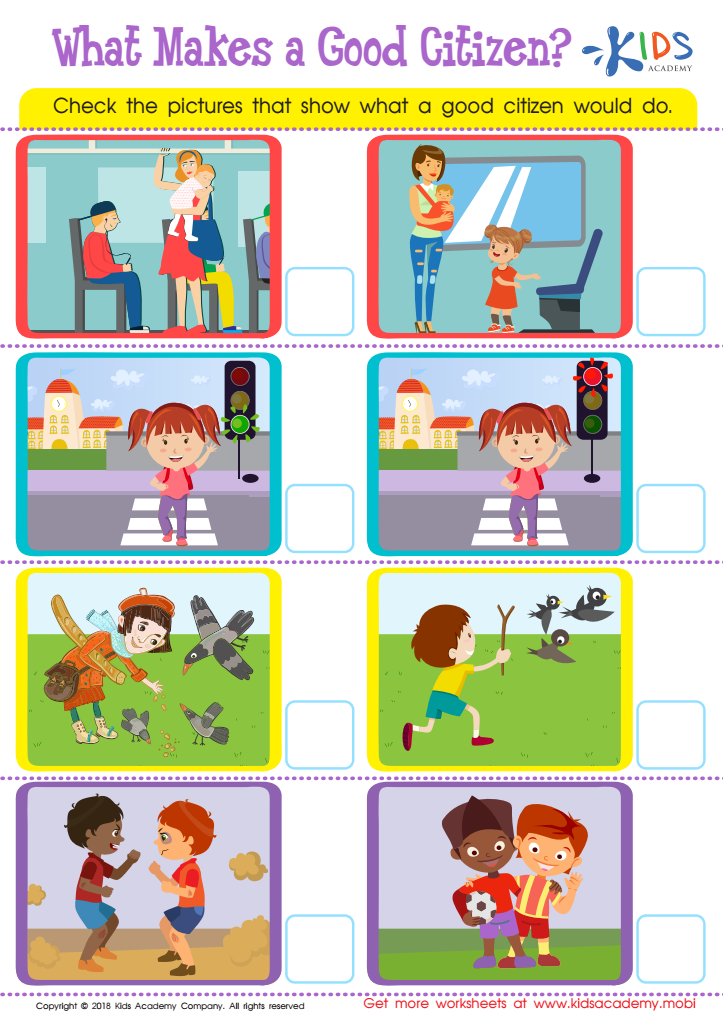

What Makes a Good Citizen? Worksheet
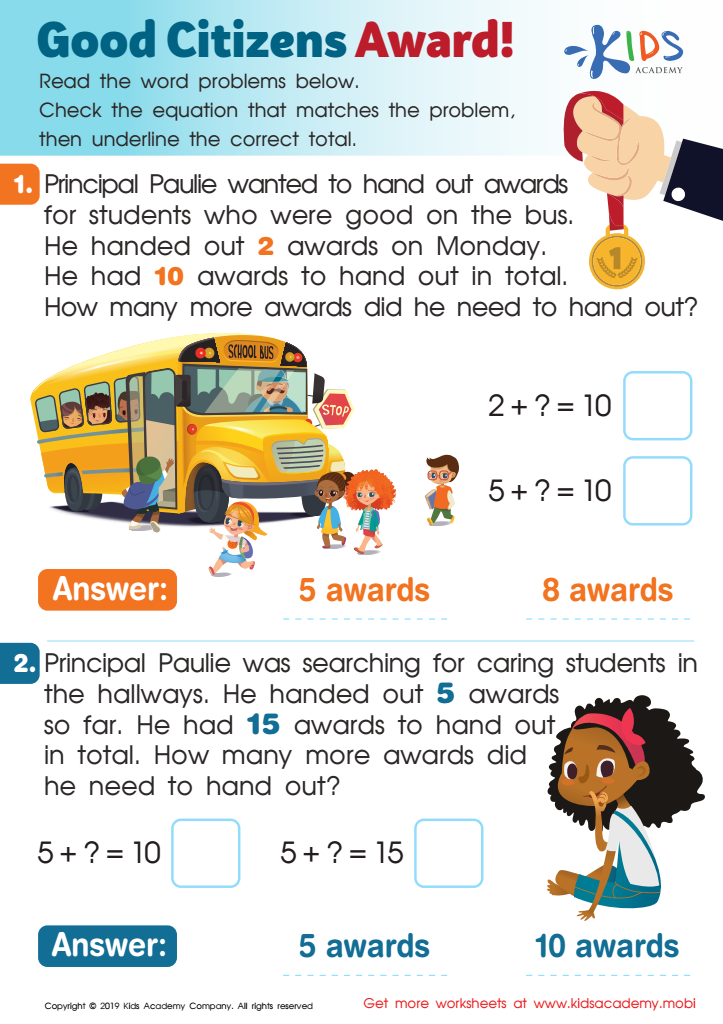

Good Citizens Award! Worksheet
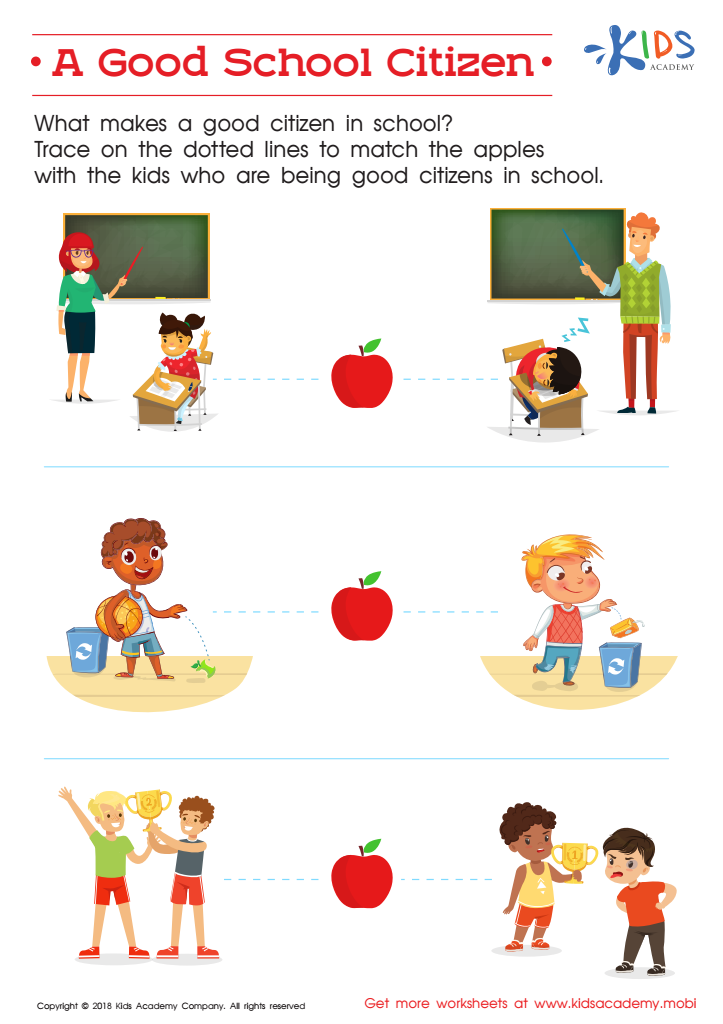

A Good School Citizen Worksheet
Understanding citizenship in Social Studies for ages 6-7 is crucial as it forms the foundation for fostering informed, responsible, and engaged future citizens. At this formative age, children develop fundamental attitudes and values that shape their behavior and interaction with others. Instilling knowledge about community roles, basic rights, and responsibilities helps young learners understand their place in society and the importance of contributing positively.
Parents and teachers play a pivotal role in this educational journey. By teaching children about citizenship, they encourage empathy, respect, and cooperation. When children grasp concepts like fairness, justice, and civic duty early on, they are more likely to grow into conscientious adults who are mindful of others and the community at large. This understanding enhances their social skills, boosts their self-esteem, and gives them a sense of belonging.
Moreover, early exposure to social studies ignites curiosity and critical thinking. Kids begin to question and explore, laying the groundwork for a lifelong pursuit of knowledge and informed decision-making. In today's interconnected and diverse world, teaching young children about citizenship helps cultivate inclusivity, tolerance, and global awareness—essential qualities for navigating and contributing to a democratic society. Ultimately, understanding citizenship fosters a well-rounded, harmonious community.

 Assign to My Students
Assign to My Students




